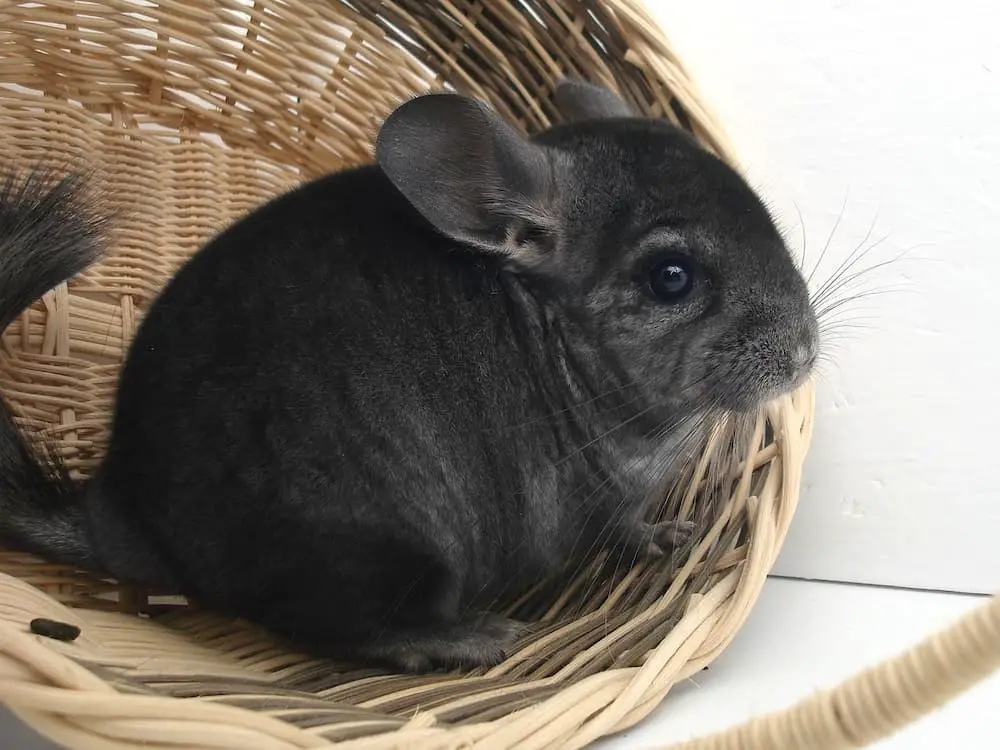Can Chinchillas Eat Corn?
In short, no chinchillas cannot eat corn. To understand why chinchillas can’t eat corn, you’ll need to learn a little bit about where corn comes from. It all starts with teosinte, the grass that corn is descended from.
Originally coming from central Mexico, corn’s distant ancestors bear little resemblance to the large corn kernels that we know today. After thousands of years of selective development and domestication, the entire genetic makeup of sweet corn has changed. This has resulted in the hulls of corn kernels containing a complex polysaccharide that chinchillas are unable to digest.
Dangers Of Corn For Chinchillas
A chinchilla’s digestive system can handle a good amount of hay and pellets. However, if a chinchilla eats something that it can’t digest i.e. corn, then the consequences can be very dangerous. Even a small amount of corn can cause horrible health conditions for chinchillas.
Other than a chinchilla’s ability to digest it, corn isn’t a suitable food for chinchillas, and here’s why:
- It’s loaded with sugars and “empty” carbohydrates
- It’s low in vitamins and minerals
- Corn is often grown with pesticides that can harm your chinchilla
- The husks and cobs can contain harmful mycotoxins
What To Do If Your Chinchilla Eats Corn
Sadly, many owners are unaware of how bad corn is, this combined with a chinchilla’s curious and inquisitive nature, it means that it wouldn’t take long for a chinchilla to quickly get into food that they’re not supposed to eat.
If you know that your chinchilla has eaten corn, then the first thing to do is look for signs of indigestion. This includes bloating, gas, constipation, and being unwilling to eat. If any of these symptoms occur, you’ll need to get in contact with your vet immediately, as it’s possible that your chinchilla may require help.
What Can Your Chinchilla Eat?
Chinchillas originate from South America and have continuously growing, open-rooted teeth that compensate for the wear that occurs from chewing on very abrasive, high-fiber grass and hay. In order to mimic this rough vegetation, the mainstay of pet chinchillas’ diets needs to be hay and should be available in unlimited quantities. Commercial pelleted food is another part of their diet, however, it should only be offered in limited amounts of no more than one-to-two tablespoons per day for an adult chinchilla.
A chinchilla that is still growing can be fed a larger amount of pellets to provide additional calories, protein, fat and calcium. Fresh greens, such as dark green lettuces, should also be given to your chinchilla, as these foods provide additional water and fiber.
As chinchillas in the wild tend to consume a lot of their food early in the morning and late at night, they should be offered food twice a day, in the morning and night, but can eat food throughout the day.
Conclusion
Corn in any form is harmful or even fatal if fed to a chinchilla. Under no circumstances should your chinchilla be given corn! Make sure to feed your chinchilla a balanced diet of hay, pellets, and clean water to keep them happy and healthy for many years to come.
